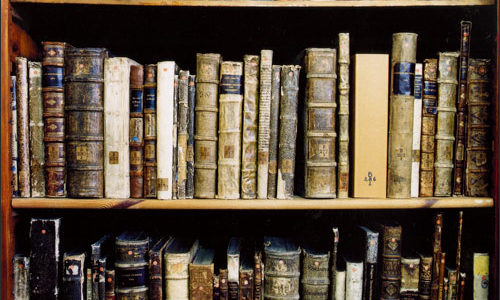
[Updated: 23 October] Check out our Journal Roundups for the latest articles in Islamic studies. Fifteen iterations have been published and the Summer 2019 edition is now online. The Summer Edition currently has issues from fifty-two journals in a wide variety of subjects and disciplines and will be revised as more journals announce their summer issues.
The journal roundup project covers over ninety English language journals in a variety of disciplines related to Islamic Studies, providing the table of contents for each journal as a tool for researchers, academics, students, and those generally interested in the field of Islamic Studies. We include only articles; book reviews can be found on the journal sites. Please let us know if we have missed any journals or if you have questions at journals@themaydan.com.
- Al-Masāq: Journal of the Medieval Mediterranean [Special Issue: Not the Final Frontier’: The World of Medieval Islands]
- American Journal of Islamic Social Sciences [Special Issue: (Mis)Representations of Islam: Politics, Community, and Advocacy]
- Arab Law Quarterly
- Arab Studies Quarterly
- Arabic Sciences and Philosophy
- Arabica
- Asian Affairs
- Australian Journal of Islamic Studies
- British Journal of Middle Eastern Studies
- Bulletin of the School of Oriental and African Studies
- Central Asian Survey [Special Issue: Practices of Traditionalization in Central Asia]
- Contemporary Arab Affairs
- Contemporary Islam
- Intellectual History of the Islamicate World [Special Issue: Writing in My Own Script: Allographic and Garshunographic Systems in Late Antiquity—Part 1]
- International Journal of Islamic Architecture
- International Journal of Middle East Studies
- Iranian Studies
- Islam and Christian-Muslim Relations
- Islamic Law and Society
- Israel Affairs (Two Issues)
- Jerusalem Quarterly
- Journal of the American Academy of Religion
- Journal of the American Oriental Society
- Journal of Arabic Literature
- Journal of Asian and African Studies
- Journal of Islamic Manuscripts
- Journal of Islamic Studies
- Journal of Islamic and Muslim Studies
- Journal of Middle East Women’s Studies
- Journal of Muslim Minority Affairs [Special Issue: The Tragedy of the Ottomans: Muslims in the Balkans and Armenians in Anatolia]
- Journal of Muslims in Europe
- The Journal of North African Studies [Special Issue: Revolutionary Diplomats? Impacts of the Arab Spring on the Formulation and Implementation of North African Foreign Policies] (Two Issues)
- Journal of Ottoman Studies
- Journal of Palestine Studies [Special Issue: Black-Palestinian Transnational Solidarity]
- Journal of Qur’anic Studies (Two Issues)
- Journal of Royal Asiatic Society
- Medieval Encounters (Two Issues)
- Middle East Critique [Special Issue: Politics of Time]
- The Middle East Journal
- Middle East Journal of Culture and Communication [Special Issue: Media in Turkey]
- Middle Eastern Studies (Two Issues)
- The Muslim World [Special Issue: Conceptualising the Umma]
- Politics and Religion
- Politics, Religion and Ideology
- Religion Compass
- Studia Islamica
- Turkish Studies [Special Issue: EU-Induced Policy Change in Turkey’s Environment and Energy Policy]

Al-Masāq: Journal of the Medieval Mediterranean
Volume 31 Issue 2Special Issue: Not the Final Frontier’: The World of Medieval Islands
Editorial by Luca Zavagno, Rebecca Darley, and Jonathan Jarrett
Articles
“Going to the Extremes”: The Balearics and Cyprus in the Early Medieval Byzantine Insular System by Luca Zavagno
Sicily: A Frontier in the Centre of the Sea? By Matthew Harpster
Mastic Production in Medieval Chios: Economic Flows and Transitions in an Insular Setting by Nikolas Bakirtzis and Xenophon Moniaros
Nests of Pirates? “Islandness” in the Balearic Islands and La Garde-Freinet by Jonathan Jarrett
The Island Frontier: Socotra, Sri Lanka and the Shape of Commerce in the Late Antique Western Indian Ocean by Rebecca Darley

American Journal of Islamic Social Sciences
Volume 36 Issue 3Special Issue: (Mis)Representations of Islam: Politics, Community, and Advocacy
Muslims, Catholics, and the Secular State by Robert Hefner
Smelling Baraka by James Edmonds
Transnational Theological Encounters by Meryem Zaman
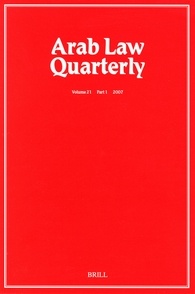
Arab Law Quarterly
Volume 33 Issue 3The Effects of the Trade-related Investment Measures Agreement on the Egyptian Economy by Lourna El-Deeb and Ahmed Labeeb
The Protection of Minors in UAE Law as Persons in Need: An Analytical Study by Iyad Mohammad Jadalhaq and Ibrahim Sulaiman al-Qatawnah
Fundamental Legal Treatment of Trafficking in Women on a Lebanese and International Level by Jamal Barafi
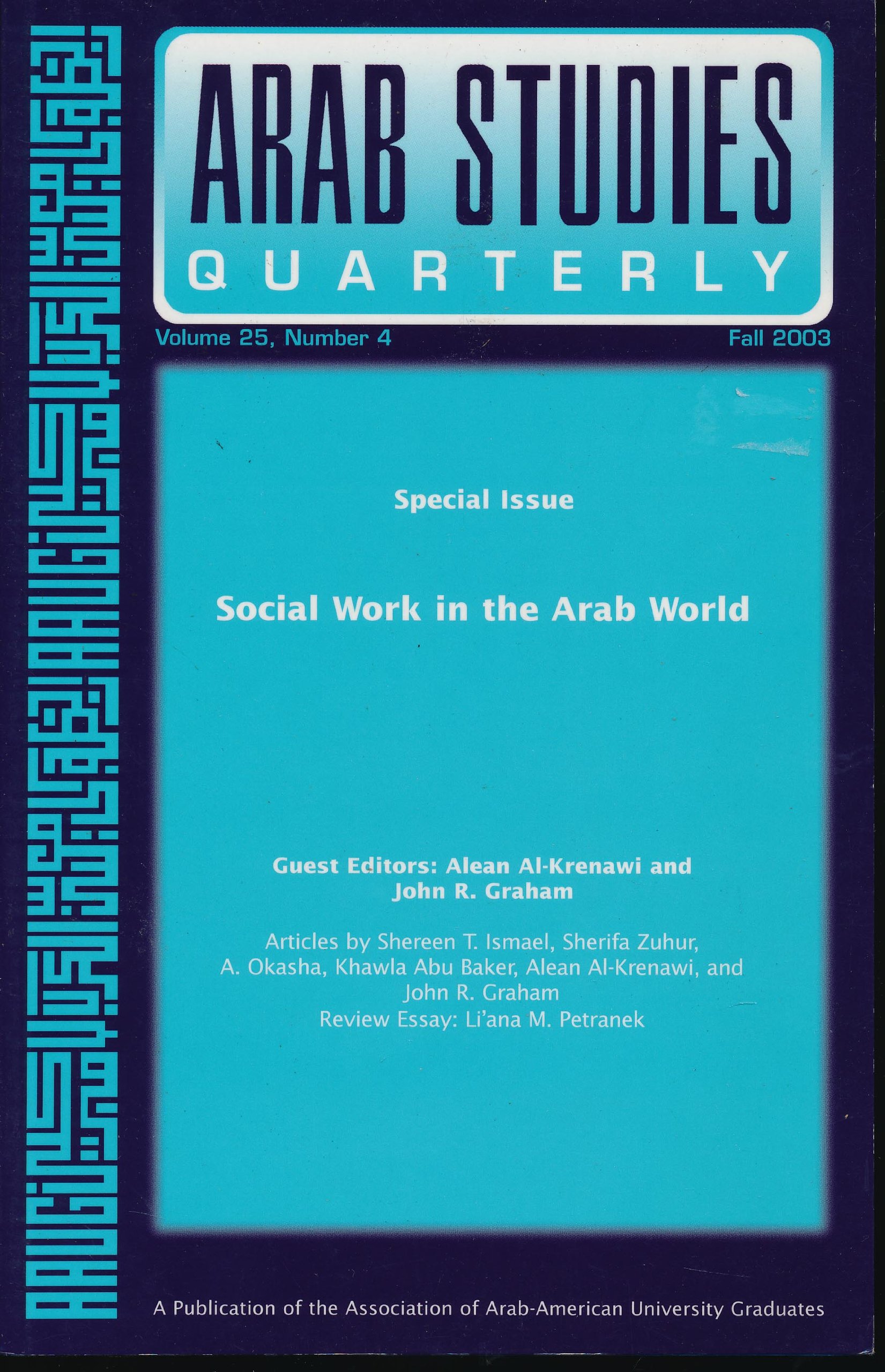
Arab Studies Quarterly
Volume 41 Issue 3Captured by the Quagmire: Iraq’s Lost Generation and the Prospects for Children across the Arab Region Today by Shireen T. Ismael
The Clashing Religions at Turbulent Political Times by Samar Attar
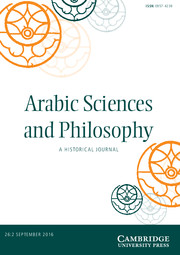
Arabic Sciences and Philosophy
Volume 29 Issue 2Ibn al-Haytham, Ibn Sīnā, al-Ṭūsī: Égalité ou Congruence by Roshdi Rashed
Avicenna’s Influence on Maimonides’ “Epistle on Astrology” by Elon Harvey
As Drops in Their Sea: Angelology through Ontology in Faḫr al-Dīn al-Rāzī’s al-Maṭālib al-῾Āliya by Nora Jacobsen Ben Hammed
An Exceptional Sage and the Need for the Messenger: The Politics of Fiṭra in a 12th-Century Tale by Raissa A. Von Doetinchem De Rande
Ibn Raḥīq’s Text on the Milky Way: Perception of the Milky Way in the Early Islamic Society by Andreas Eckart
Aḥmad B. al-Ṭayyib al-Saraḫsī, Réviseur de l’Introduction Arithmétique de Nicomaque De Gérase et Rédacteur des Rasā᾿il Iḫwān al-Ṣafā᾿ by Guillaume de Vaulx D’Arcy
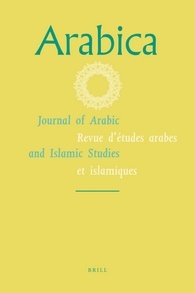
Arabica
Volume 66 Issue 3-4Introduction: les documents de chancellerie au prisme de l’historicité dans l’Islam médiéval by Pascal Buresi
The Myriad Sources of the Vocabulary of ʿAbd al-Ḥamīd al-Kātib (d. 132/750) by Wadād al-Qāḍī
Li-kull dahr dawla wa-riǧāl: temps, auteurs et autorité chez les théoriciens andalous de la kitāba, Ve/XIe-VIe/XIIe siècles by Bruna Soravia
La chancellerie almohade de Tinmāl: l’imām Ibn Tūmart et la formation de la structure de la lettre almohade (515/1121-524/1129) by Jaafar Benelhaj Soulami
Les citations de lettres de la chancellerie almohade dans les chroniques: rôle, place et fonction narrative by Mehdi Ghouirgate
Kātib or muwaṯṯiq? New Approaches to the Writing of Private Arabic Documents in Granada by Sergio Carro Martín
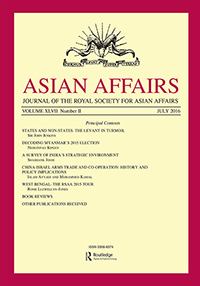
Asian Affairs
Volume 50 Issue 3The Impact of Globalization on Saudi Male Millennials’ Identity Narratives by Mark C. Thompson
Iran’s Struggle for Strategic Dominance in a Post-ISIS Iraq by Beston Husen Arif
Kurdistan’s Referendum: The Withdrawal of the Kurdish Forces in Kirkuk by Hawre Hasan Hama and Farhad Hassan Abdulla
Labor Zionist Ideology and the Foundation of Israeli Foreign Policy by Hamed Mousavi

Australian Journal of Islamic Studies
Volume 4 Issue 1Re-Examining the Story of Banū Qurayẓah Jews in Medina with a Reference to the Account of Ibn Isḥāq by Sadik Kirazli
No Looking Back: Islam and Identity in Contemporary Australian Art by Sam Bowker
An Assessment of Arberry’s Translation of Emphasis in Qur’anic Dialogue by Lama Edris
Reviving Avicenna’s Hermeneutics: Muḥammad ‘Abduh on the Qur’an as a Source of Scientific Knowledge by Mohammad Abu Shareea
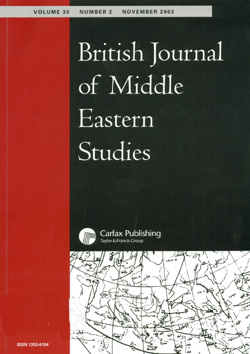
British Journal of Middle Eastern Studies
Volume 46 Issue 3A ‘Nation in Exile’: The Renewed Diaspora of Syrian Armenian Repatriates by Marisa Della Gatta
Corruption Protection: Fractionalization and the Corruption of Anti-corruption Efforts in Iraq after 2003 by Sarwar Mohammed Abdullah
Reza Shah’s Journey into Exile by Shaul Bakhash
Syria, Saudi Arabia, the U.A.E. and Qatar: The ‘Sectarianization’ of the Syrian Conflict and Undermining of Democratization in the Region by Line Khatib
Equal Partners? The Information Research Department, SAVAK and the Dissemination of Anti-communist Propaganda in Iran, 1956–68 by Darius Wainwright
Talismans and Figural Representation in Islam: A Cultural History of Images and Magic by Negar Zeilabi
Party Competition in the Middle East: Spatial Competition in the Post-Arab Spring Era by Ali Çarkoğlu, André Krouwel, and Kerem Yıldırım
Iran’s 1907 Constitution and Its Sources: A Critical Comparison by Eric Massie and Janet Afary
The ‘Formal’ Marjaʿ: Shiʿi Clerical Authority and the State in Post-2003 Iraq by Harith Hasan Al-Qarawee
Understanding Arab Civil Society: Functional Validity as the Missing Link by Carmen Geha
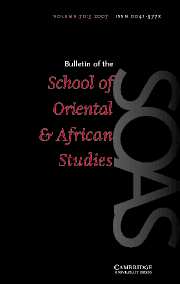
Bulletin of the School of Oriental and African Studies
Volume 82 Issue 2Indo-Persian historian and Sindho-Persian intermediary: the Tarikh-i Maʿsumi of Mir Muhammad Maʿsum Bhakkari (d. 1606) by Ali Anooshahr
“The Grace of God” as evidence for a written Uthmanic archetype: the importance of shared orthographic idiosyncrasies by Marijn van Putten
Samāǧa performances in third/ninth-century Abbasid courts by Massimiliano Borroni
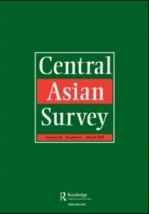
Central Asian Survey
Volume 38 Issue 3Special Issue: Practices of Traditionalization in Central Asia
Editorial by Madeleine Reeves
Introduction
Practices of Traditionalization in Central Asia by Judith Beyer and Peter Finke
Articles
Women of Protest, Men of Applause: Political Activism, Gender and Tradition in Kyrgyzstan by Judith Beyer and Aijarkyn Kojobekova
Traditionalization, or the Making of a Reputation: Women, Weddings and Expenditure in Tajikistan by Juliette Cleuziou
The Body Global and the Body Traditional: A Digital Ethnography of Instagram and Nationalism in Kazakhstan and Russia by Diana T. Kudaibergenova
The Veterans’ Gala: The Use of Tradition in an Industrial Labour Conflict in Contemporary Kazakhstan by Tommaso Trevisani
Appropriating and Contesting ‘Traditional Islam’: Central Asian Students at the Russian Islamic University in Tatarstan by Dominik Müller
Traditionalization as a Response to State-Induced Development in Rural Tibetan Areas of Qinghai, PRC by Jarmila Ptackova
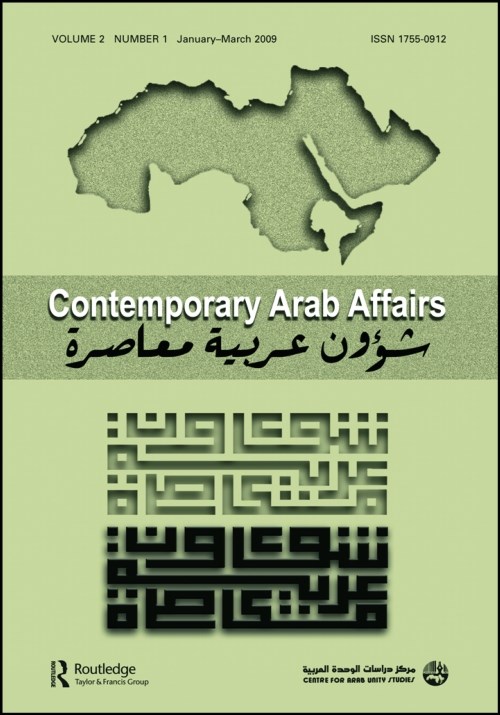
Contemporary Arab Affairs
Volume 12 Issue 3Post-Islamism: Ideological Delusions and Sociological Realities by Abdul Ghani Imad
Offensive versus Defensive Realism: Russia’s Policy of Countering the United States in Syria and Beyond by Dmitry Grafov
Rethinking the Root Causes of The Tunisian Revolution and its Implications by Mohammad Dawood Sofi
The Mauritanian Civil State in Crisis: The Gulf between Society and State by Mohamed El-Amine Ould Mohamed Ibrahim
Sovereignty in Morocco: Between Royal Legitimacy and Democratic Legitimacy by Mohamed Fouad El Achouri
Saudi Arabia and UAE in the Horn of Africa: Containing Security Threats from Regional Rivals by Shady Ahmed Mansour and Yara Yehia Ahmed
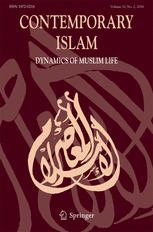
Contemporary Islam
Volume 13 Issue 2Reading and Remembering Saba Mahmood: Islam, Ethics, and the Hermeneutics of Tradition by Robert W. Hefner
The American Prophetic Tradition and Social Justice Activism among Muslims in Milwaukee, Wisconsin by Caroline Seymour-Jorn, Kristin Sziarto, and Anna Mansson McGinty
Reviving “A Forgotten Sunna:” Hijamah (Cupping Therapy), Prophetic Medicine, and the Re-Islamization of Unani Medicine in Contemporary India by Kira Schmidt Stiedenroth
Digitalizing Islamic Lectures: Islamic Apps and Religious Engagement in Contemporary Indonesia by Moch Fakhruroji
Marriage “Sharia Style”: Everyday Practices of Islamic Morality in England by Julie Billaud
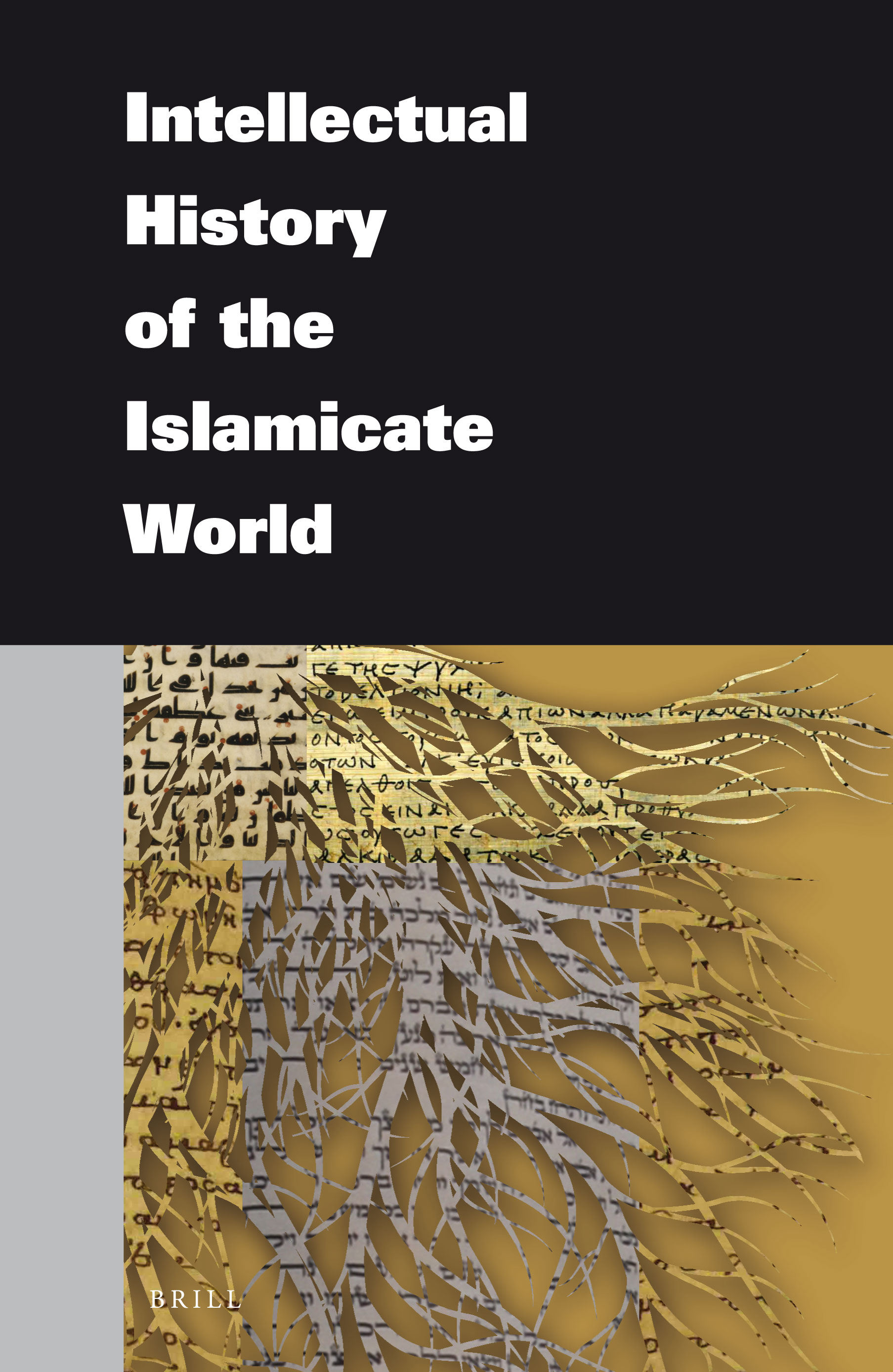
Intellectual History of the Islamicate World
Volume 7 Issue 2-3Special Issue: Writing in My Own Script: Allographic and Garshunographic Systems in Late Antiquity—Part 1
Introduction by George A. Kiraz and Sabine Schmidtke
Garshuni
Characteristics of Some Turkic Garshuni Texts Preserved in an 18th Century Chaldean Prayer Book by Jonas Karlsson
A Functional Approach to Garshunography: A Case Study of Syro-X and X-Syriac Writing Systems by George A. Kiraz
Some Remarks on the Use of Garšūnī and Other Allographic Writing Systems by the Melkites by Johannes Pahlitzsch
A Syro-Turkic Poem on Divine Economy Ascribed to Khāmīs: Critical Edition by Anton Pritula and Peter Zieme
Judeo-Arabic
Dual Script Mixed Code Literary Sources from the Cairo Genizah by Meira Polliack
Script-switching between Hebrew and Arabic Scripts in Documents from the Cairo Genizah by Esther-Miriam Wagner
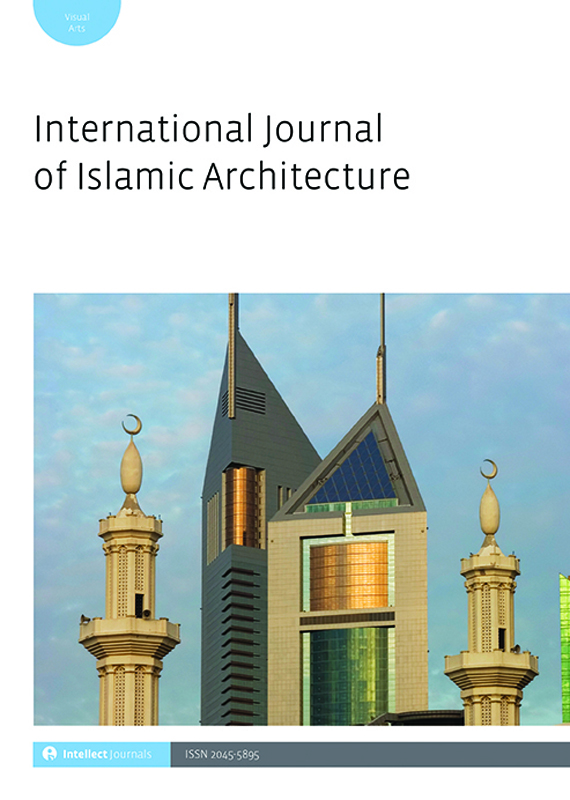
International Journal of Islamic Architecture
Volume 8 Issue 2Editorial Essay
Confining Contingency by Farhan Karim
Design in Theory Articles
One House of Worship with Many Roofs: Imposing Architecture to Mediate Sunni, Alevi, and Gülenist Islam in Turkey by Angela Andersen
Housing Others: Design and Identity in a Bedouin Village by Noam Shoked
Staging Baghdad as a Problem of Development by Huma Gupta
Architecture of Exclusion: The Savujbulagh-i Mukri Garrison, Border-Making, and the Transformation of the Ottoman-Qajar Frontier by Nader Sayadi
Reconstructing the Muslim Self in Diaspora: Socio-Spatial Practices in Urban European Mosques by Elisabeth Becker
Design in Practice Article
The Rome Mosque and Islamic Centre: A Case of Diasporic Architecture in the Globalized Mediterranean by Theodore Van Loan and Eva-Maria Troelenberg
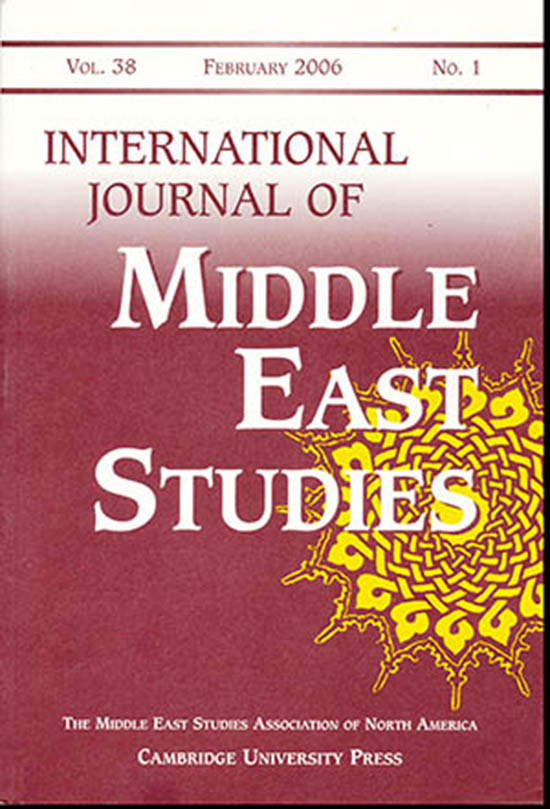
International Journal of Middle East Studies
Volume 51 Issue 3Ethnography
“The Fault of Our Grandfathers”: Yemen’s Third-Generation Migrants Seeking Refuge from Displacement by Nathalie Peutz
The Sound and Meaning of God’s Word: Affirmation in an Old Cairo Qurʾan Lesson by Nermeen Mouftah
History
Gender Anxieties in the Iranian Zūrkhānah by H.E. Chehabi
Documenting Community in the Late Ottoman Empire by Henry Clements
Shiny Things and Sovereign Legalities: Expropriation of Dynastic Property in the Late Ottoman Empire and Early Turkish Republic by Ceyda Karamursel
New Directions in Sports Studies
Roundtable
Introduction: Is There a Middle Eastern Sport? By Tamir Sorek
Sports and the Making of the Modern Middle East by Murat C. Yıldız
“We Are mansaf, You Are mulūkhīya”: Symbols and Meanings of Football in Jordan by Dag Tuastad
Hegemonic Discourses Clash in the Stadium: Sport, Nationalism, and Globalization in Turkey by John Konuk Blasing
Football Femininities: Lessons from the Gulf by Charlotte Lysa
Sport, Bodily Habitus, and the Subject(s) of the Middle East by Paul A. Silverstein
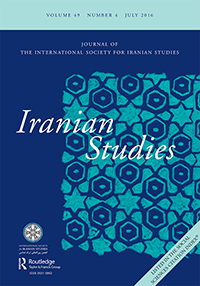
Iranian Studies
Volume 52 Issue 3-4Commercial, Confessional, and Military Encounters in the Ottoman–Iranian Borderlands in the Early Modern Period by Fariba Zarinebaf
Azerbaijan between Two Empires: A Contested Borderland in the Early Modern Period (Sixteenth‒Eighteenth Centuries) by Fariba Zarinebaf
A Messiah Untamed: Notes on the Philology of Shah Ismāʿīl’s Dīvān by Ferenc Csirkés
Treaty of Zohab, 1639: Foundational Myth or Foundational Document? By Sabri Ateş
Rethinking Idris-i Bidlisi: An Iranian Bureaucrat and Historian between the Shah and the Sultan by Vural Genç
The Safavid-Qizilbash Ecumene and the Formation of the Qizilbash-Alevi Community in the Ottoman Empire, c. 1500–c. 1700 by Rıza Yıldırım
Through the Backdoor: An Overview of the English East India Company’s Rise and Fall in Safavid Iran, 1616–40 by Daniel Razzari
Safavid Iran and the “Turkish Question” or How to Avoid a War on Multiple Fronts by Rudi Matthee
Ottoman Taxation and the Province of Tabriz in the Early Eighteenth Century by Fariba Zarinebaf
The Mazandarani Dialect of Kalijān Rostāq by Habib Borjian
Operation Countenance: The 1941 Invasion of Iran and the Clash of Propaganda Narratives by Mervyn Roberts
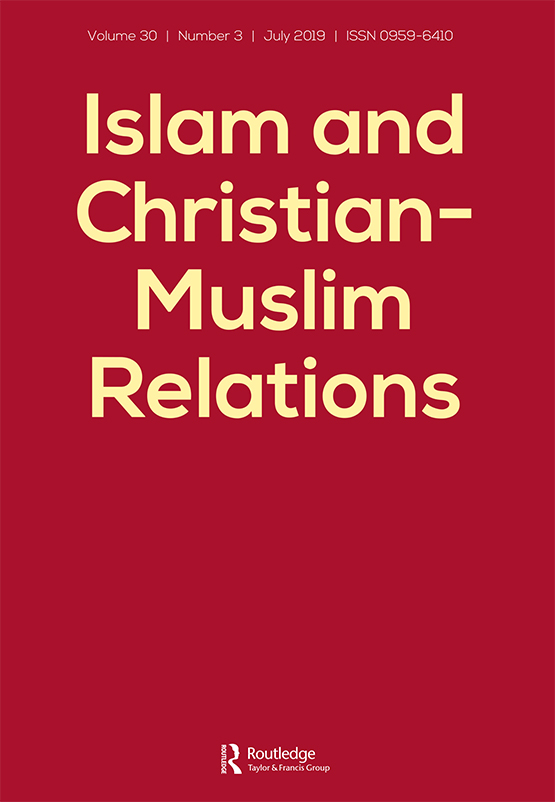
Islam and Christian-Muslim Relations
Volume 30 Issue 3Agency, Identity and Ecumenicalism in the American Missionary Schools of Tripoli, Lebanon by Joshua Donovan
Copts, the State and the 1949–1950 al-Majlis al-Millī Electoral Crisis: Articulating Community in a Time of Anxiety by Weston Bland
‘It’s Not Just about Faith’: Narratives of Transformation When Moving Out of Islam in the Netherlands and Britain by Maria Vliek
Advancing Shūrā: A Social Agent for Democratization by Shaheen Amid Whyte
Sharʿī Norms and German Schools: Court Challenges to Participation in Swimming Lessons, School Trips and Sex Education by Fabian Spengler
In Search of the Supracultural: American Missionaries in the Gulf in 1920s–1930s by Jerzy Zdanowski
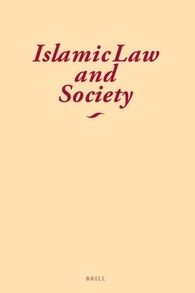
Islamic Law and Society
Volume 26 Issue 4Un traité de droit mālikite égyptien redécouvert : Aṣbaġ b. al-Faraǧ (m. 225/ 840) et le serment d’abstinence by Mathieu Tillier and Naïm Vanthieghem
Underwriting the Empire: Nizamiye Courts, Tax Farming and the Public Debt Administration in Ottoman Syria by Nora Barakat
Filling Gaps in Legislation: The Use of Fiqh by Contemporary Courts in Morocco, Egypt, and Indonesia by Baudouin Dupret, Adil Bouhya, Monika Lindbekk and Ayang Utriza Yakin
‘Where Only Women May Judge’: Developing Gender-Just Islamic Laws in India’s All-Female ‘Sharī‘ah Courts’ by Justin Jones
From Slaves to Prisoners of War: The Ottoman Empire, Russia, and International Law, written by Will Smiley, 2019 by Mariam Sheibani
Corporate Islam: Sharia and the Modern Workplace, written by Patricia Sloane-White, 2017 by Sarah A. Tobin
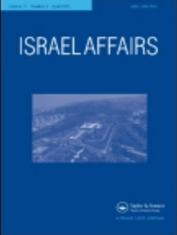
Israel Affairs
Volume 25 Issue 4Comparing the Image of the Arab in the Palmah Generation Literature to the Enemy Image in Soviet Literature by Helena Rimon and Ron Schleifer
Silencing and Silence in Negev Bedouin Students’ Narrative Discourse by Adnan Gribiea, Smadar Ben-Asher, and Irit Kupferberg
Mizrahi Perceptions of Their TV Portrayal in Israel by Nissim Katz and Hillel Nossek
Photographic Portrayal of Israel in the Italian Leftwing Press, 1947-67 by Dario Migliucci
Changing Borders in a Changing Region: The Civilian Dimension and Security Predicament along the Syrian-Israeli Border by Nir Boms and Karolina Zielińska
Keys for Peace in the Middle East: Interview with Ambassador Itamar Rabinovich by Raphael Cohen-Almagor
Risk Aversion and the Character of the Individual’s Place of Residence by Tchai Tavor
Israeli Political Attitudes and Income in the 2006–2015 Elections by Zoya Nissanov
Jewish Sport Associations in Poland before World War II by Joanna Banbula

Israel Affairs
Volume 25 Issue 5The Power of Hegemony: Human Figures on Israeli Banknotes by Na’ama Sheffi and Anat First
Benjamin Netanyahu’s State Visit to India by Pradipta Roy
Grassroots Diplomacy in Practice: Initiatives by Israeli Civilians at Bridging the Divide with the Iranian People by S. Shahvar and M. Sepahan
From Material to Abstract: Contemporary Israeli Design Manifested through the Culture of Wood by Kenneth Segal and Jonathan Ventura
A Biblical View of Eating and Nutrition in Contrast to That in Graeco-Roman Writings: Restraint, Respect, Purpose, and Order by Kalman J. Kaplan, Matthew B. Schwartz, and Moriah Markus-Kaplan
The Israeli Tax Reforms in the 1970s as Socially Oriented Reforms by Yair Barak
‘Journalist 2.0?’ Educational Radio in Israel by Tal Laor
Gender Preferences of Work Outcomes over the Course of Time: A Cross-Sectional Study in Israel by Moshe Sharabi, Javier Simonovich, and Tal Shahor
Broken Worlds in Broken Words: Empty Discourse on War in Israeli Literature by Orna Levin
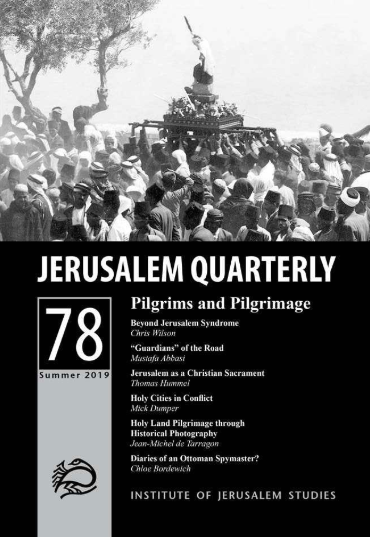
Jerusalem Quarterly
Issue 78Pilgrims and Pilgrimage
Essays
Pilgrims and Pilgrimage by Jacob Norris
“Guardians” of the Road: Abu Ghush Family in the Jerusalem Mountains during the Eighteenth and Nineteenth Centuries by Mustafa Abbasi
Jerusalem as a Christian Sacrament by Thomas Hummel
Holy Cities in Conflict: Jerusalem in a Broader Context by Mick Dumper
Why Do Palestinians Burn Jewish Holy Sites? The Fraught History of Joseph’s Tomb by Alex Shams
Like a Seal on Your Arm: The Tradition of Tattooing among Jerusalem Pilgrims by Marie-Armelle Beaulieu
Letter from Jerusalem
Pilgrimage: Shaper of Jerusalem by George Hintlian
Articles
Beyond Jerusalem Syndrome: Religious Mania and Miracle Cures in British Mandate Palestine by Chris Wilson
Diaries of an Ottoman Spymaster?: Treason, Slander, and the Afterlife of Memoir in Empire’s Long Shadow by Chloe Bordewich
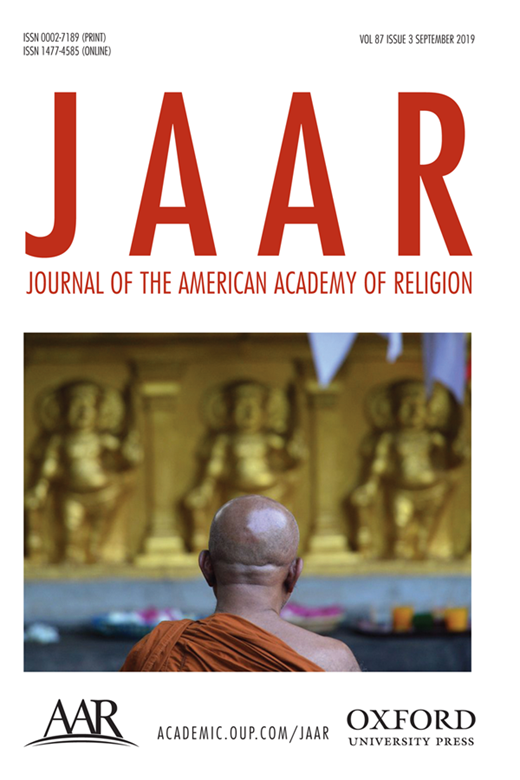
Journal of the American Academy of Religion
Volume 87 Issue 3Lived Secularism: Studies in India and Turkey by Anna Bigelow
Fatwa, Discursivity, and the Art of Ethical Embedding by Omer Awass
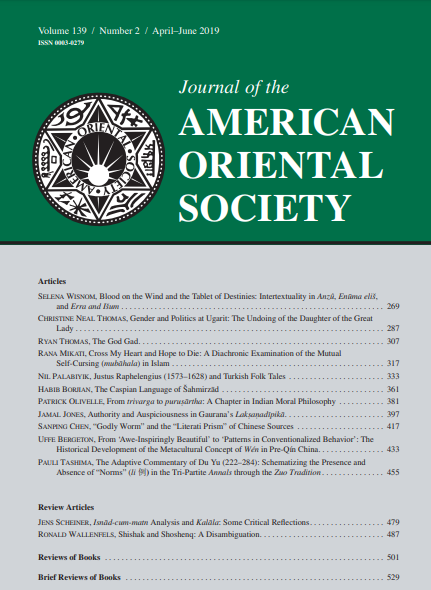
Journal of the American Oriental Society
Volume 139 Issue 2Cross My Heart and Hope to Die: A Diachronic Examination of the Mutual Self-Cursing (mubāhala) in Islam by Rana Mikati
Justus Raphelengius (1573-1628) and Turkish Folk Tales by Nil Palabiyik
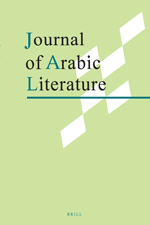
Journal of Arabic Literature
Volume 50 Issue 2Allegories of Ruin: Architecture and Knowledge in Early Arabic Poetry by Hassanaly Ladha
Andalusi Contests, Syrian Media Content: The Poetic Ritual Ijāzah by Samuel England
In the Shadows of the Middle East’s Wars, Oil, and Peace: The Construction of Female Desires and Lesbianism in Middlebrow Egyptian Literature by Hanan Hammad
Allegiance Performed: Waṭaniyyah Poetry on the Stage of the Shāʿir al-Milyūn Competition by Katrien Vanpee
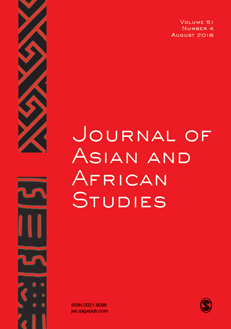
Journal of Asian and African Studies
Volume 54 Issue 5Understanding Hegemony of Caste in Political Islam and Sufism in Sindh, Pakistan by Ghulam Hussain
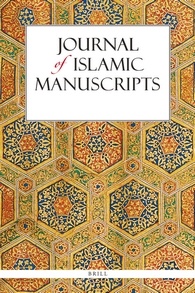
Journal of Islamic Manuscripts
Volume 10 Issue 2The Mughal Manuscript of the Ḥamza-nāma in the Context of Oral Storytelling and Performance: Correction, Comprehension, Reconstruction and Narrative Cycles by Zahra Faridany-Akhavan
Al-Ṣiqillī or al-Ṣaqalī / Sicily or Tunisia? Ink Recipes from the Western Regions of Islamic Lands by Arianna D’Ottone Rambach
Manuscripts of al-Muṭarrizī’s Works in Tashkent by Akram Khabibullaev
Inks as Instruments of Writing: Ibn al-Ǧazarī’s Book on the Art of Penmanship by Lucia Raggetti
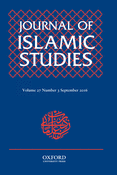
Journal of Islamic Studies
Volume 30 Issue 3Up All Night Out of Love for the Prophet: Devotion, Sanctity, and Ritual Innovation in the Ottoman Arab Lands, 1500–1620 by Jonathan Parkes Allen
Islamic Astronomy in Fifteenth-Century Christian Environments: Cardinal Bessarion and His Library by Alberto Bardi
Of Saints, Shrines, and Tractors: Untangling the Meaning of Islam in Soviet Central Asia by Paolo Sartori
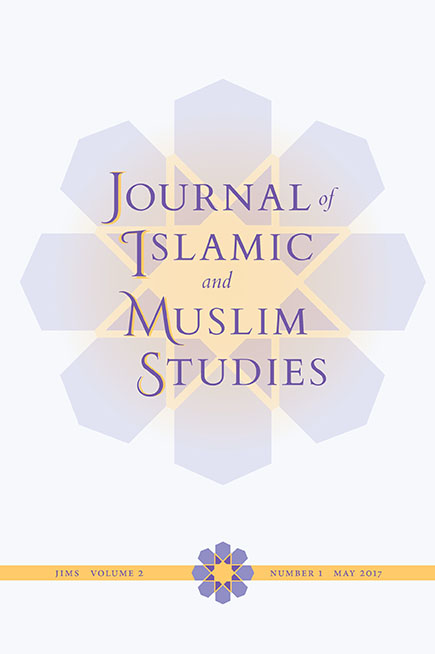
Journal of Islamic and Muslim Studies
Volume 4 Issue 1Divine Diversity: The Aga Khan’s Vision of Pluralism by Khalil Andani
The Contention Between Secular and Revealed Law: Analyzing Ibn Rushd’s Solution to the Problem of the “Virtuous Society” by Jaan S. Islam
“I Was Born in the Wrong Time”: The Concept of Selfhood in the Writings of Anbar Otin by Donohon Abdugafurova
Ibn Khaldūn’s Defense of Mu‘āwiya: The Dynamics of ‘Aṣabīyya, Mulk and the Counter-Revolution According to the Muqaddima by Mohammad Omar Farooq
Discussion and Debate Forum
Freedom of Conscience in the Qur’an and Hadith by Aisha Y. Musa
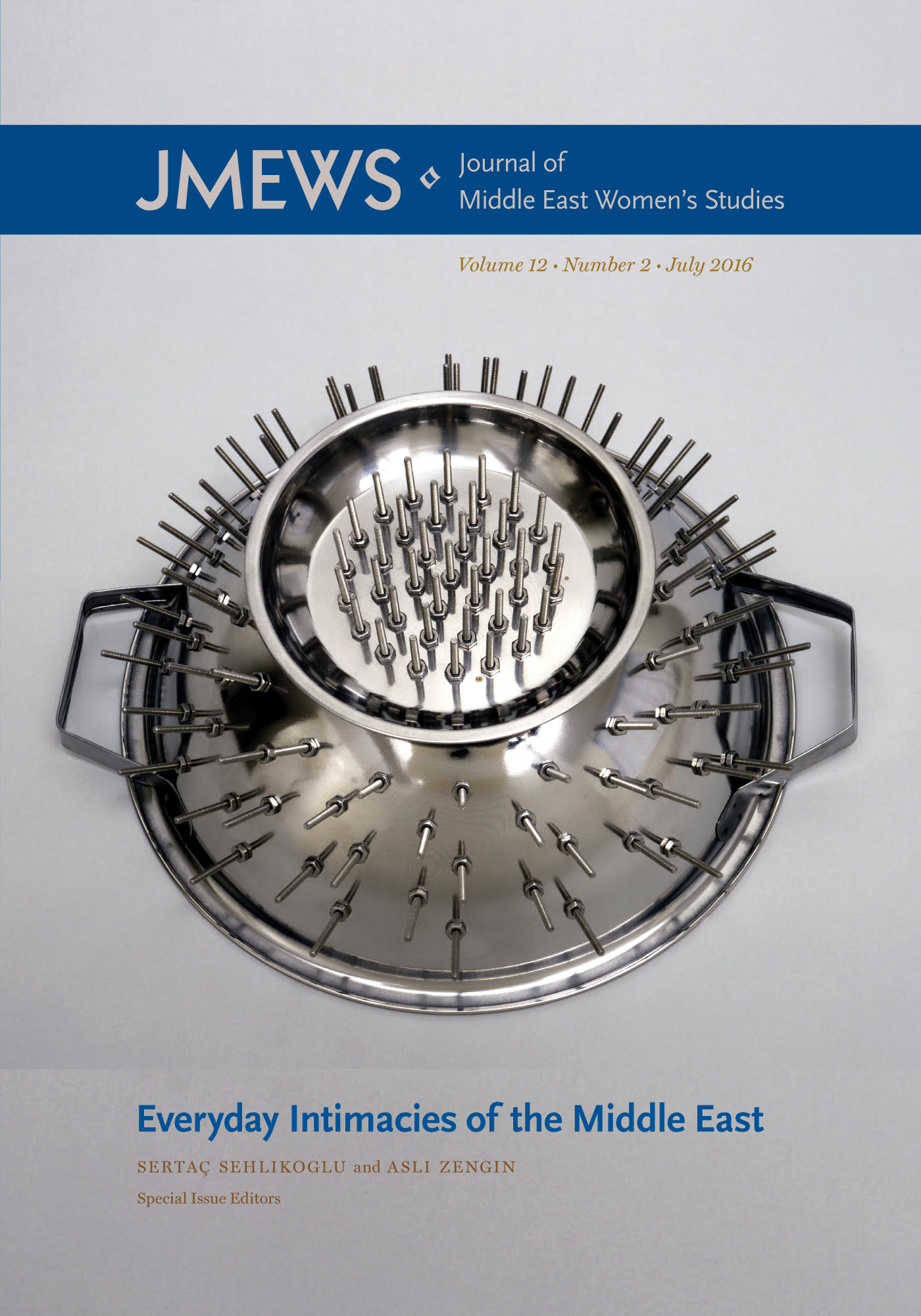
Journal of Middle East Women’s Studies
Volume 15 Issue 2Dancing Queens: Queer Desire in Golden Era Egyptian Cinema by Mejdulene B. Shomali
Love, Lebanese Style: Toward an Either/And Analytic Framework of Kinship by Sabiha Allouche
A Question of Personal Status: The Lebanese Women’s Movement and Civil Marriage Reform by Nelia Hyndman-Rizk
Girl Guides, Athletes, and Educators: Women and the National Body in Late Colonial Algeria by Jakob Krais
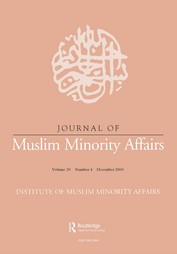
Journal of Muslim Minority Affairs
Volume 39 Issue 3Special Issue: The Tragedy of the Ottomans: Muslims in the Balkans and Armenian in Anatolia
The Tragedy of the Ottomans: Muslims in the Balkans and Armenians in Anatolia by M. Hakan Yavuz & Hakan Erdagöz
Islamophobia Never Rests in the Balkans: Muslim Communities and the Legacy of Exclusionary Nationalisms and Ethnic Expulsions by Raymond Taras
Islam and Muslims in Greater Serbian Ideology: The Origins of an Antagonism and the Misuse of the Past by Admir Mulaosmanović
Reading the Eastern Question through the Prism of Orientalism: Hubris, Founding Genealogy and James Bryce by Hakan Erdagöz
The Balkan Wars: An Expected Opportunity for Ethnic Cleansing by Igor Despot
Ömer Seyfettin—The Balkan Wars, World War I, and His Criticism of Ottomanism and Minority Nationalisms by Umut Uzer
The Schizoid Border in the Construction of Ethno-Nationalist Body by Senadin Musabegović
Violence as a Means of Nation-Building: The Case of the Balkans (1890–1913) by Mehmet Arısan
Armenians and the Cleansing of Muslims 1878–1915: Influences from the Balkans by Brad Dennis
In Search of the “Immortal” Volunteers: The Legacy of Armenian Fedayis on the Caucasus Front, 1914–1916 by Christopher Gunn
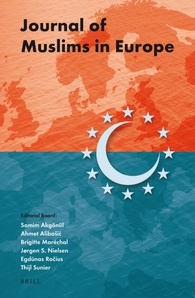
Journal of Muslims in Europe
Volume 8 Issue 3More Than “Multiple Jeopardy”: Navigating the Legal System as a British-Muslim-Woman-Litigant-in-Person by Suriyah Bi
“Parallel” Muftiates as the “Third Force” among Spiritual Administrations of Muslims in Russia by Renat Bekkin
“The Muslim Question” and Muslim Women Talking Back by Nella van den Brandt
Post-Socialist Sufi Revival in Albania: Public Marginality or Spiritual Privatisation? by Gianfranco Bria
A Fatwa and Its Dialectics: Contextualizing the Permissibility of Mortgages in Stockholm by Uriya Shavit
Social Capital as a Lubricant for Exercising Rights: A Case Study of Selected Muslims in North East England by W.A. Amir Zal
Islam and Secular Citizenships in the Netherlands, United Kingdom and France, written by Carolina Ivanescu by Sakina Loukili
Kingdoms of Faith: A New History of Islamic Spain, written by Brian A. Catlos by Stephan Venmans
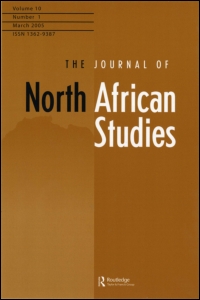
The Journal of North African Studies
Volume 24 Issue 4Special Issue: Revolutionary Diplomats? Impacts of the Arab Spring on the Formulation and Implementation of North African Foreign Policies
Article Commentary
Saudi Arabia Reasserts Itself in the Maghrib by Anne Wolf
Articles
Revolutionary Diplomats? Introduction to the Study of North African Foreign Policies within the Context of the Arab Spring by Peter J. Schraeder, Brian Endless, Michael J. Schumacher, and Kirstie Lynn Dobbs
Democratisation and the Evolution of the Foreign Policy Content of North African Constitutions by Tofigh Maboudi
Military Influence in Foreign Policy-Making: Changing Dynamics in North African Regimes by Zoltan Barany
Aspiring to the ‘Gatekeeper Role’ in the Realm of Foreign Policy? The North African Ministry of Foreign Affairs in the Arab Spring Era by Peter J. Schraeder
Differentiation and Diffusion: Shifting Public Opinion Attitudes toward Foreign Policy in North Africa by Lindsay J. Benstead
Islamist Parties and Foreign Policy in North Africa: Bridging Ideology and Pragmatism by Quinn Mecham
Evolving Role of North African Civil Society Actors in the Foreign Policymaking Process: Youth, Women’s, Labour and Human Rights Organisations by Kirstie Lynn Dobbs and Peter J. Schraeder
The Evolving Impact of Violent Non-state Actors on North African Foreign Policies during the Arab Spring: Insurgent Groups, Terrorists and Foreign Fighters by Michael J. Schumacher and Peter J. Schraeder

The Journal of North African Studies
Volume 24 Issue 5Special Section: ‘Jazīrat al-Maghrib’: North Africa as an Island?
Article commentary
The Myth of Stability in Algeria by Anne Wolf
Articles
Introduction to Special Section: ‘Jazīrat al-Maghrib’: North Africa as an Island? By Peter Kitlas
Scholarship, Space, and Strategies of Belonging in al-Maqqarī’s (d. 1031/1632) Literary and Historical Writings by Sabahat F. Adil
Geographies of Vengeance: Orientalism in Alexandre Dumas’ The Count of Monte Cristo by Silvia Marsans-Sakly
No Man Is an Island: Globalisation and Resilience in the Fez zillīj Tradition by Ann Shafer
Trapped on the Island: The Politics of Race and Belonging in Jazīrat al-Maghrib by Isabella Alexander
Biopolitics and the Emergent Self-reflexive Maghribi Subjectivity in Laila Lalami’s Hope and Other Dangerous Pursuits by Fouad Mami
Argan Oil and the Question of Empowerment in Rural Morocco by Wendy Perry, Olivia Rappe, Ali Boulhaoua, Latifa Hassan Loux, Youness Elhouss, Hichame Ait Ahssain, Zohra Ait Barich, Hasna Akhiyat, Tayeb Amine Aznague, and Sahar Hraïd
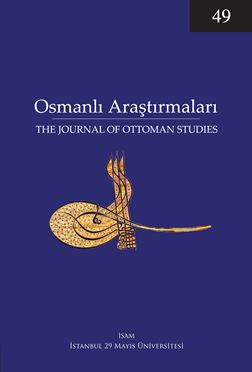
Journal of Ottoman Studies
Issue 54Detection of Haydar al-Harawī’s Sharh al-Kashhāf Dedicated to Mehmed I and the Data Presented in This Work in the Literature, Biography and History by M. Taha Boyalik
Surpassing Timur: Superiority Claims of the Aqquyunlus over the Ottomans by Vural Genç
Two Paths to Power: Sokolluzade Hasan Paşa and Hadım Yusuf Paşa and Their Art Patronage in Early-Seventeenth-Century Baghdad by Meli̇s Taner
Habsburg–Ottoman Communication in the Mid-17th Century –The Death of Imperial Courier Johann Dietz. A Case Study by János Szabados
Unusual Foundations in the Ottoman Empire: Non-Muslim Waqfs and Also Those for “Poor Muslims” by Kenan Yildız
Last Fortress in Ottoman Hungary: End of Ottoman Domination in Timişoara (1716) by Beki̇r Gökpinar
New Fiscal Actors to Control Provincial Expenditures at the End of the 18th Century by L. Sevi̇nç Küçükoğlu
Food Safety in the Ottoman Empire: The Problem of Adulterated Olive Oil in the Context of Public Health and International Trade by Oya Gözel-Durmaz
The Ottoman Empire as Seen through the Lens of Israeli Textbooks for History by Seli̇m Tezcan and Alper Saribaş
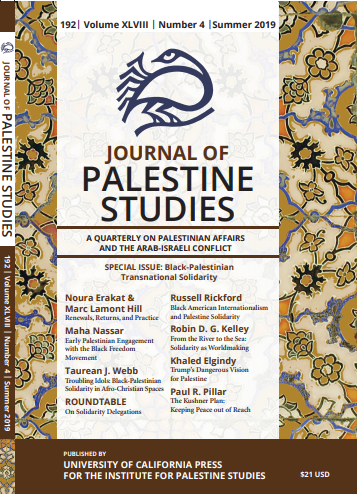
Journal of Palestine Studies
Volume 48 Issue 4Special Issue: Black-Palestinian Transnational Solidarity
Black-Palestinian Transnational Solidarity: Renewals, Returns, and Practice by Noura Erakat and Marc Lamont Hill
Palestinian Engagement with the Black Freedom Movement prior to 1967 by Maha Nassar
Troubling Idols: Black-Palestinian Solidarity in U.S. Afro-Christian Spaces by Taurean J. Webb
“To Build a New World”: Black American Internationalism and Palestine Solidarity by Russell Rickford
From the River to the Sea to Every Mountain Top: Solidarity as Worldmaking by Robin D. G. Kelley
Roundtable: On Solidarity Delegations with Ahmad Abuznaid, Phillip Agnew, Maytha Alhassen, Kristian Davis Bailey, and Nadya Tannous
Trump’s Dangerous Vision for Palestine by Khaled Elgindy
The Kushner Plan: Keeping Israeli-Palestinian Peace out of Reach by Paul R. Pillar
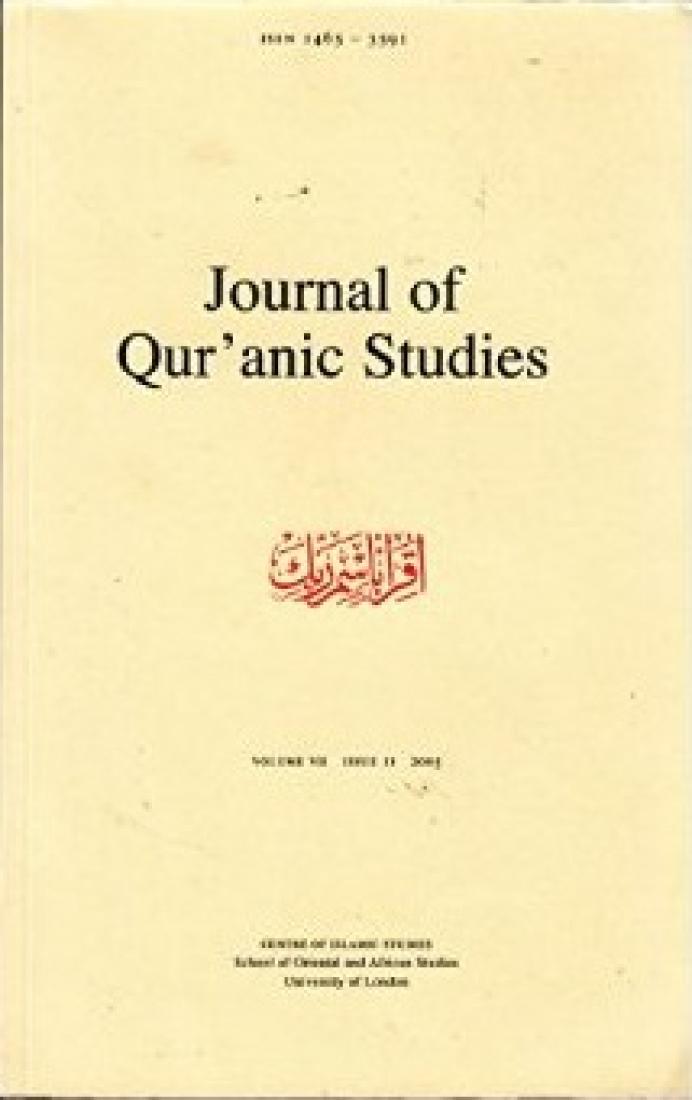
Journal of Qur'anic Studies
Volume 21 Issue 1Taste My Punishment and My Warnings (Q. 54:39): On the Torments of Tantalus and Other Painful Metaphors of Taste in the Qur’an by Thomas Hoffmann
Ambiguity, Ideology, and Doctrine Propagation in Qur’an Translation by Burçin K. Mustafa
Tropology and Inimitability: Ibn ʿĀshūr’s Theory of tafsīr in the Ten Prolegomena to al-Taḥrīr wa’l-tanwīr by Gibril Fouad Haddad
Representations of ṣabr in the Qur’an: A Study on the Imperative (khiṭāb al-amr) by Al-Tār Walad ʿAbd Allah and Nahla Zahdī Ibrāhīm Al-Shalabī
The Role of Arabic Grammar in Understanding and Appreciating the Qur’an by Mamoon Abdelhaleem Muhammad Wajih

Journal of Qur’anic Studies
Volume 21 Issue 2Li-qawmin yatafakkarūn (Q. 30:21): Muhammad Asad’s Qur’anic Translatorial Habitus by Furzana Bayri
Fakhr al-Dīn al-Rāzī on the Question ‘Why Worship God?’ by Hannah C. Erlwein
Slavery, Indenture, and Freedom: Exegesis of the ‘mukātaba Verse’ (Q. 24:33) in Early Islam by Ramon Harvey
The Jews Say the Hand of God is Chained: Q. 5:64 as a Response to a Midrash in a piyyut by R. Elʿazar ha-Kallir by Shari L. Lowin
Repetition in āyat al-nūr (Q. 24:35) and āyat al-ẓulumāt (Q. 24:40) by Ashjan Hendi
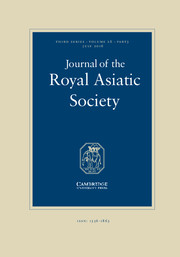
Journal of the Royal Asiatic Society
Volume 29 Issue 3Yahia Bihram’s Narrative Colophons Part 1: DC 35 by Matthew Morgenstern
Al-Bustānī’s Approach to the Arabic Language: From Theory to Practice by Fruma Zachs and Yehudit Dror
Acknowledgment Deeds (iqrārs) in Early New Persian from the Area of Bāmiyān (395–430 AH/1005–1039 CE) by Ofir Haim
Negotiating Female Authorship in Eighteenth-Century India: Gender and Multilingualism in a Persian Text by Zahra Shah
The Art of Chieftaincy in the Writings of Pashtun Tribal Rulers by Mikhail Pelevin
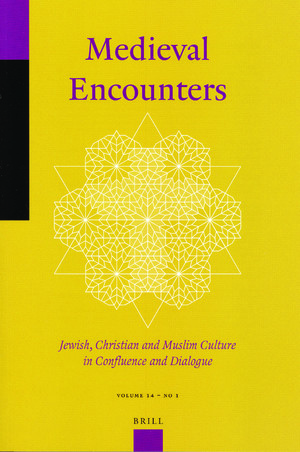
Medieval Encounters
Volume 25 Issue 3Religious Innovation under Fatimid Rule: Jewish and Muslim Rites in Eleventh-Century Jerusalem by Daniella Talmon-Heller and Miriam Frenkel
The Camels of Charles the Bald by Samuel Ottewill-Soulsby

Medieval Encounters
Volume 25 Issue 4The View from the Monasteries: Taxes, Muslims and Converts in the “Pseudepigrapha” from Middle Egypt by Cecilia Palombo
Abraham Ibn Ezra as the Translator of Astrological and Astronomical Texts from Arabic into Hebrew: Sources and Methods by Shlomo Sela
El discurso anti-islámico castellano: de disputa teológica a cimiento del proyecto universalista carolino (1460–1530) by Constanza Cavallero
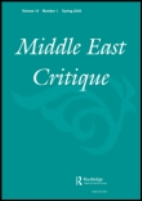
Middle East Critique
Volume 28 Issue 3Special Issue: Politics of Time
Introduction
Making and Unmaking Memories: The Politics of Time in the Contemporary Middle East by Roberto Roccu and Sara Salem
Articles
Democratization beyond Capitalist Time: Temporalities of Transition in the Middle East after the Arab Uprisings by Roberto Roccu
Re-remembering Third Worldism: An Affirmative Critique of National Liberation in Algeria by Alina Sajed
Haunted Histories: Nasserism and The Promises of the Past by Sara Salem
Memory Studies in the Middle East: Where Are We Coming From and Where Are We Going? By Sune Haugbolle
Smoke and Mirrors: Rising Israeli ‘Fascism’ or Forgetting the Labour Zionist Past by Sai Englert
The Graveyard of Empires: Haunting, Amnesia and Afghanistan’s Construction as a Burial Site by Nivi Manchanda
Staging the State: Commemoration, Urban Space and the National Symbolic Order in 1970s Cairo by Aya Nassar
War Memory, Confessional Imaginaries, and Political Contestation in Postwar Lebanon by Bassel F. Salloukh
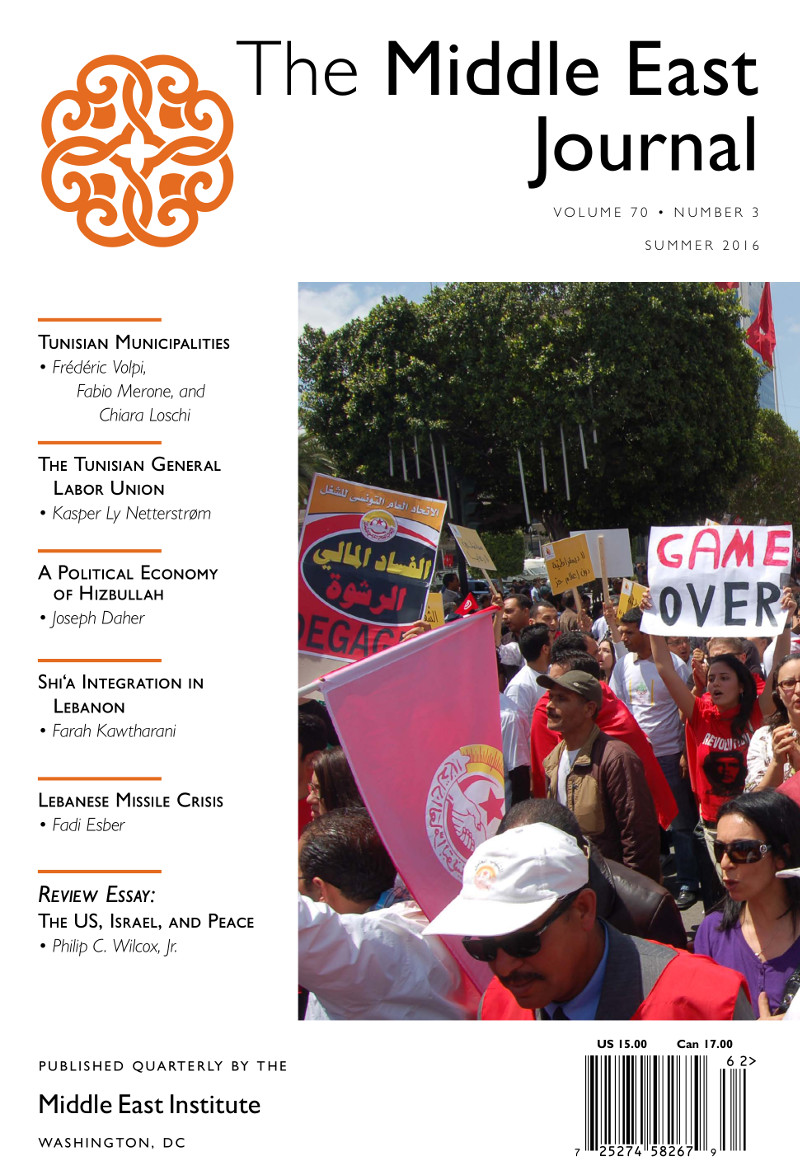
The Middle East Journal
Volume 73 Issue 2The First Intifada, Settler Colonialism, and 21st Century Prospects for Collective Resistance by Nadia Naser-Najjab and Ghassan Khatib
Palestinian Women Teachers in East Jerusalem: Layers of Discrimination in the Labor Market by Rawan Asali Nuseibeh
Smokescreen Diplomacy: Excluding the Palestinians by Self-Rule by Jørgen Jensehaugen
A Political-Economic History of Jordan’s General Intelligence Directorate: Authoritarian State-Building and Fiscal Crisis by Pete W. Moore
The Politics of Development and Security in Iran’s Border Provinces by Eric Lob and Nader Habibi
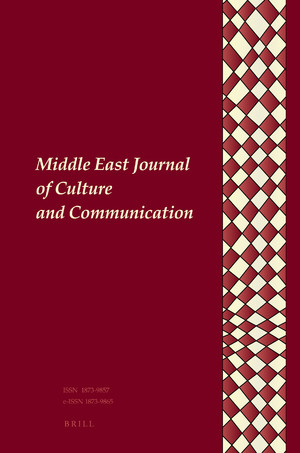
Middle East Journal of Culture and Communication
Volume 12 Issue 2Special Issue: Media in Turkey
Introduction: Media, Politics and Culture in Turkey, the Middle East and Beyond by Altug Akin and Bilge Yesil
The Weaponization of Doubt: Re-thinking Erdogan in an Era of Trumpism by Christian Christensen
Boycotting Neo-Ottoman Cool: Geopolitics and Media Industries in the Egypt-Turkey Row over Television Drama by Marwan M. Kraidy
#TurkeyIsNotAChicken: How Pro-government Netizens Explain the Coup Attempt to Western Audiences by Bilge Yesil
Political Use of Twitter in Post-Gezi Environmental Protests by Burak Doğu
Does Journalism Exist in Turkey? Constraints on and Struggles in the Field of Journalism in the Post-coup Context by Altug Akin
Local Broadcasting as Tactical Media: Exploring Practices of Kurdish Activism and Journalism in Turkey by Ece Algan
Religion on Air: The Birth and Transformation of Religious Broadcasting in Turkey by Burak Özçetin
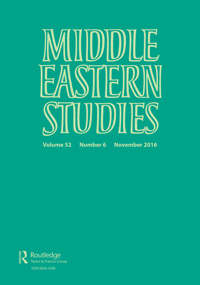
Middle Eastern Studies
Volume 55 Issue 5Imagining Modernity: The Language and Genealogy of Modernity in Nineteenth-century Arabic by Wael Abu-ʿUksa
Ottoman Apprentices and Their Experiences by Nalan Turna
Photographs of Ataturk in the Early Republican Press: How His Image Was Used to Visualize Events? By Idil Cetin
The Exile of Husayn b. Ali, Ex-sharif of Mecca and Ex-king of the Hijaz, in Cyprus (1925–1930) by Martin Strohmeier
Changing Israeli Perceptions of the Relations with the International Committee of the Red Cross in the Wake of the June 1967 War: From Coexistence to Open Hostility by Alexander Bligh
Mission Impossible: William Rogers (Secretary of State, 1969–1973) and the Attempt to Reach a Peace Accord between Israel and Egypt by Moshe Gat
The Development of Kuwaiti Islamists’ Political Ideology: The Administration of the Kuwaiti Supreme Committee and the Free Kuwait Campaign during the Second Gulf Crisis 1990–91 by Ali A. Alkandari
Framing the Fall of Sinjar: Kurdish Media’s Coverage of the Yazidi Genocide by Hawre Hasan Hama
Determinants of Arab Public Opinion on the Caliphate: Islamist Elites, Religiosity and Socioeconomic Conditions by Amir Abdul Reda
The Council of Expediency: Crisis and Statecraft in Iran and Beyond by Maziyar Ghiabi

Middle Eastern Studies
Volume 55 Issue 6The British Empire in India, the Gulf pearl and the making of the Middle East by Guillemette Crouzet
Between national sovereignty and foreign capital: the fate of the French companies’ concessions in Turkey after the War of Liberation by Neslişah Leman Başaran Lotz
Young Turk Governance in the Ottoman Empire during the First World War by Erik Jan Zürcher
Turco-British relations, Cold War and reshaping the Middle East: Egypt, Greece and Cyprus (1954–1958) by Cemal Yorgancıoğlu & Şevki Kıralp
The latent politicization of Alevism: the affiliation between Alevis and leftist politics (1960–1980) by Mehmet Ertan
The construction and re-construction of the civil religion around the cult of Atatürk by Birol Çaymaz
Children in war time: the first pupils of the Syrian (Schneller) orphanage in Jerusalem 1860–1863 by Fruma Zachs
Historical geography of the Palestine southern coastal plain in the late Ottoman period – the Ashkelon region as a case study by Avi (Avraham) Sasson
The destruction of old Jaffa in 1936 and the question of the Arab refugees by Tamir Goren
The Sephardi and Oriental Jews of Haifa and Arab-Jewish relations in Mandate Palestine by Moshe Naor
Jewish and Christian Sanctity under Israeli Sovereignty: Mount Zion, King David’s Tomb and the Last Supper Room (1948–1967) by Doron Bar
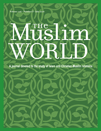
The Muslim World
Volume 109 Issue 3Special Issue: Conceptualising the Umma
Conceptualising the Umma: An Introduction by James Piscatori
The Construction of the Umma: From Global Consciousness to an Aspirational Global Society by Ganjar Widhiyoga
Dimensions of Muslim Unity in Russia, 1905‐1917 by Elmira Akhmetova
Between Foreign Policy and the Umma: The Muslim Brotherhood in Egypt and Jordan by Alia Al Kadi
Pathways of the Umma: The Flow of Faith Tourists from Peninsular Malaysia to Aceh in Indonesia by Sumit K. Mandal
Deconstructing the Political Umma: Mohamed Talbi on Discursive Shift and Political Islam by Kelly Al‐Dakkak
Umma: A Modern Turkish Approach by Ravza Altuntaş‐Çakır
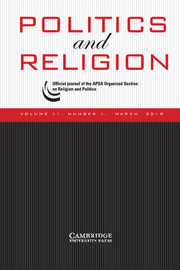
Politics and Religion
Volume 12 Issue 3Symposium: Political Secularism and Religious Difference in Western Europe, The Middle East, and North Africa
Introduction: Political Secularism and Religious Difference in Western Europe, the Middle East, and North Africa by Jeffrey Haynes and Erin Wilson
Secular–Religious Competition and the Exclusion of Islam from the Public Sphere: Islamic Welfare in Western Europe by Matthias Kortmann
Patterns of Political Secularism in Italy and Turkey: The Vatican and the Diyanet to the Test of Politics by Luca Ozzano and Chiara Maritato
The Normative Power of Secularism. Tunisian Ennahda’s Discourse on Religion, Politics, and the State (2011–2016) by Hanna Pfeifer
The Sacred as Secular: State Control and Mosques Neutrality in Post-Revolutionary Tunisia by Teije H. Donker
The Secular-Religious Competition Perspective in Comparative Perspective by Jonathan Fox
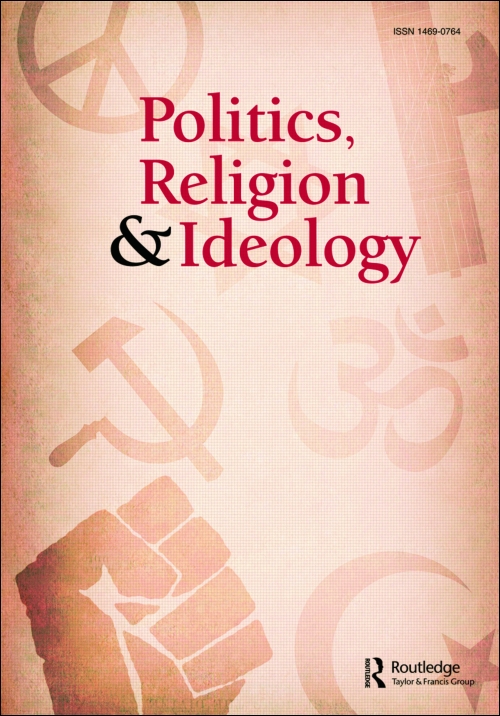
Politics, Religion & Ideology
Volume 20 Issue 2
Religion Compass
Volume 13 Issue 8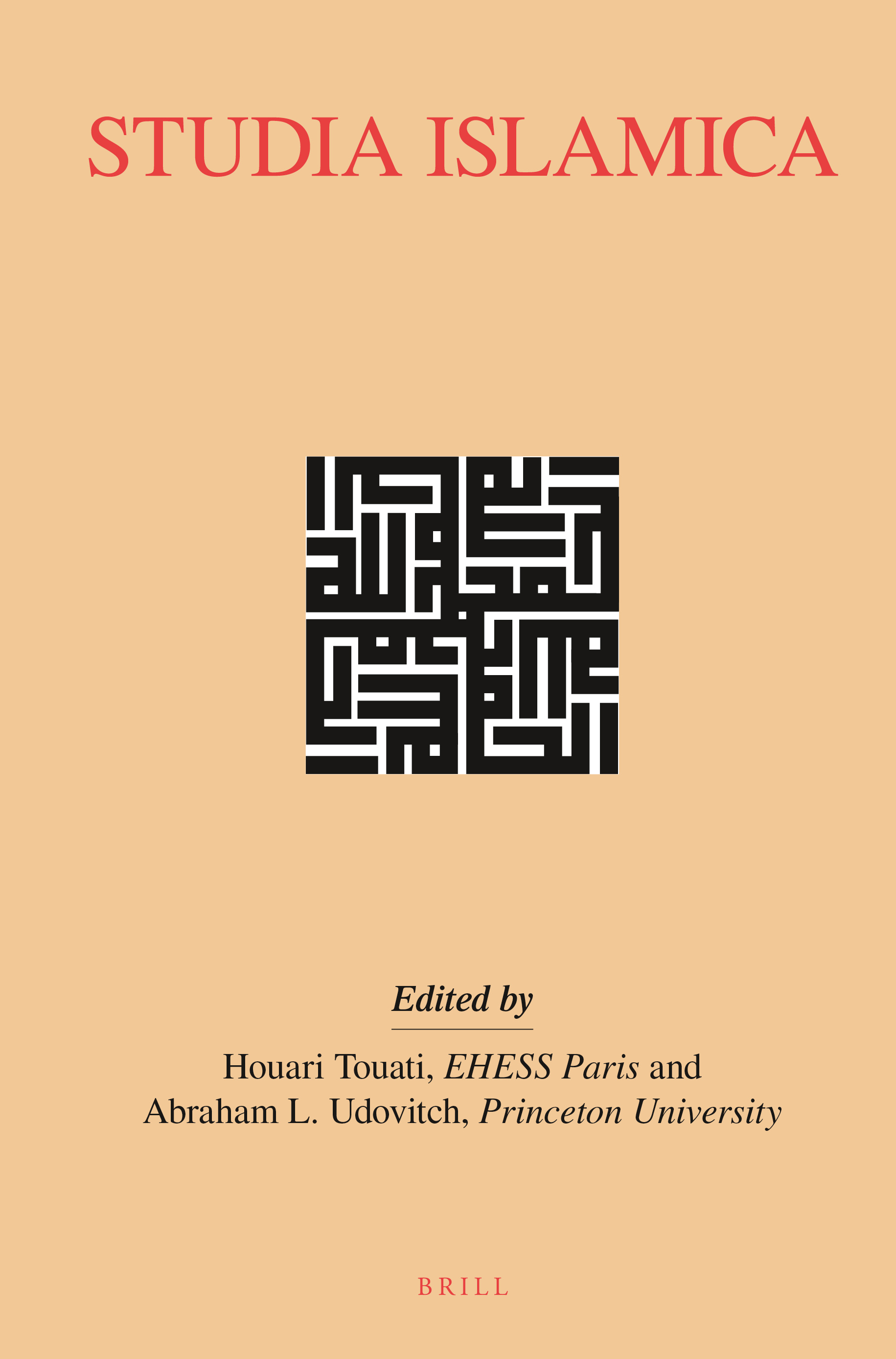
Studia Islamica
Volume 114 Issue 2Le jeûne de ramaḍān: la construction de la communauté des fidèles by Mohammed Hocine Benkheira
Facts or Fables? Muslims’ Evaluation of Historical Memory by Hossein Modarressi
Heraclius’ War Propaganda and the Qurʾān’s Promise of Reward for Dying in Battle by Tommaso Tesei
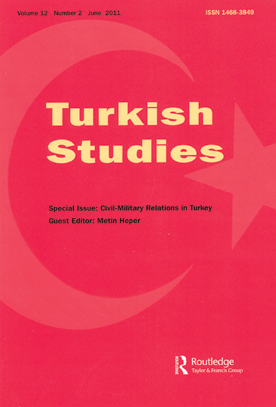
Turkish Studies
Volume 20 Issue 4Special Issue: EU-Induced Policy Change in Turkey’s Environment and Energy Policy
Introduction: Special Issue on EU-Induced Policy Change in Turkey’s Environment and Energy Policy by Alexander Bürgin and Kai Oppermann
Articles
Policy Learning: An Understudied Mechanism of EU Influence on Turkish Domestic Politics by Alexander Bürgin
Price and Prejudice: The Politics of Carbon Market Establishment in Turkey by Ethemcan Turhan and Arif Cem Gündoğan
Climate Governance in Turkey: A Forward-Looking Perspective by Zerrin Savaşan
Turkey’s Nuclear Energy Policy in the Context of Environment: A Case of Europeanization? By S. Duygu Sever
The Urbanization Policy of Turkey: An Uneasy Symbiosis of Unimplemented Policy with Centralized Pragmatic Interventions by Savaş Zafer Şahin
The Multi-Level Policy Learning of Environmental Policy: Insights from Izmir by Koray Velibeyoğlu and Onur Mengi
What Did the Turkish Climate Movement Learn from a Global Policy Failure? Frame Shift after the Copenhagen Climate Summit by Barış Gençer Baykan

